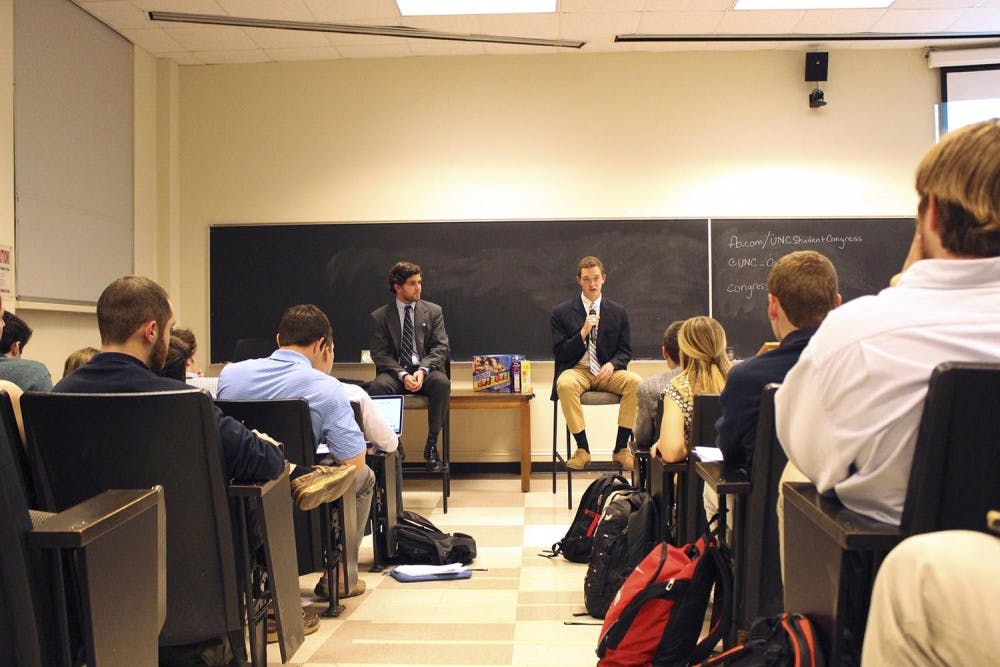“Viewpoint neutrality is something that is dictated by the Supreme Court of the United States when it comes to funding organizations at a federal level,” Simons said. “What that says is that no funding decision can be based on whether you agree with an organization and their beliefs or not.”
Hardy, a 2015 graduate and former speaker of Student Congress, said when she was on the finance committee, she did not think the policy of neutrality was followed by everyone.
She said the finance committee had cliques when she was on it, and although members weren’t allowed to vote for funding of organizations they were affiliated with, their friends had their backs.
Since becoming a member of the committee, Shriver said she has noticed a similar issue.
“It’s just like politics in real life,” Hardy said. “Even if he abstained, there was generally a group of people that voted together.”
Augustine, a first-year peace, war and defense and mathematical decision sciences major, said she was not surprised when she saw how much men outnumbered women on the finance committee.
“The same thing happened to me when I got into my Calc 3 class this semester,” she said. “A STEM-centered committee is generally less likely to have more females just because of the way that STEM breaks down — but it doesn’t mean that it has to stay that way.”
Ben Albert, a junior business and economics major and finance committee chairperson, said he thinks the gender breakdown of the committee is reflective of finance as a field. He said he thinks women should be shown that the committee is not just for men.
Shriver said she led a finance committee meeting when Albert was absent last semester, and some of the men on the committee did not give her the same respect as him. They talked over her — something, she said, they don’t do to Albert.
“It is a reflection of the world,” she said. “You hear all the time of women being put down and not being heard. It shows me what I’m about to face.”
Hardy said although Student Congress was about two-thirds male when she was a member, she never felt like she wasn’t listened to because of her gender.
To get the day's news and headlines in your inbox each morning, sign up for our email newsletters.
“Everybody was a dominant personality when I was on the finance committee,” Hardy said. “If you didn’t work to stand out and make sure your voice was heard, it just wasn’t going to be heard — whether you were a woman or a man.”
She said when she was speaker of Congress, the then-president of the Graduate and Professional Federation was also a woman. She said both student government leaders encouraged women to run for office.
“We would find women in our classes who we thought would be assets to Student Congress and we would tell them to join — not just for themselves, but because they’d be lending a voice to a large group of people on this campus who may not be well-represented,” Hardy said.
Hardy said during her time in Student Congress, the organization lacked in racial diversity. She said when she was speaker of Congress, she was one of three black people across Student Congress and GPSF combined.
“It was mostly white males that you saw in Student Congress, and a fair amount of white females,” she said. “But as far as women of color? Not a whole lot of us there.”
Simons said he thinks Student Congress can improve in diversity, and wants the organization’s makeup to be reflective of UNC’s student body.
“I would encourage students who feel their voices aren’t represented at UNC to run in the upcoming election,” he said.
university@dailytarheel.com



